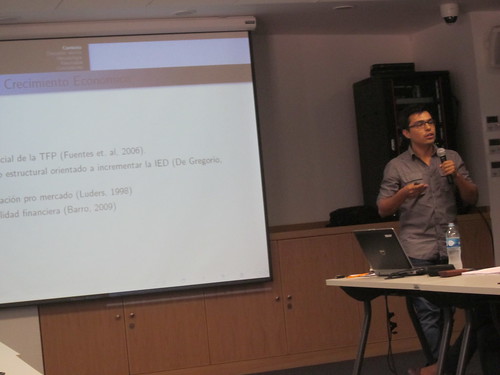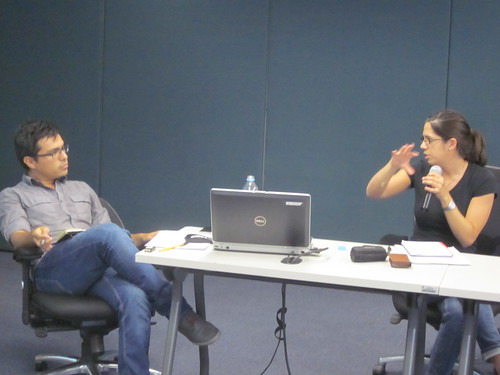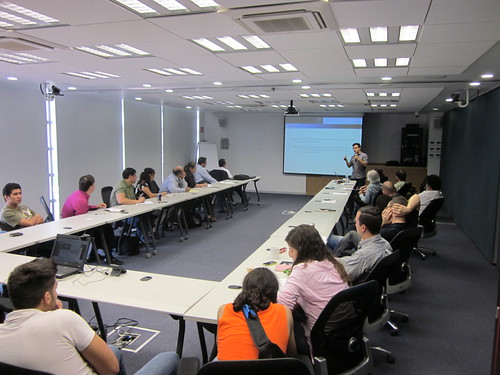We recently hosted Dr. Dusan Paredes (Universidad Catolica del Norte, Chile) at CIDE Region Centro, in the context of the Regional Indicators project that CIDE Region Centro’s Regional Studies Research Group is currently engaged in (an INEGI-CONACYT funded project).
It’s hard for me to participate in a seminar on spatial econometrics, and the intersection of economic geography (a la Hayter or McLachlan) and geographical economics (a la Krugman), and not be super excited. After all, my PhD dissertation was precisely on spatial agglomeration, industrial clusters and environmental regulation. While I do mostly water governance and solid waste management (within the framework of comparative environmental policy in North America), I can’t help but be still in love with economic geography and spatial analysis.
Dusan’s paper (Desigualdad espacial de ingresos en Chile y su relación con la concentración de capital humano avanzado, Spatial income inequality in Chile and its relationship with advanced human capital concentration) was presented in Spanish, which facilitated the discussion as we had several folks from INEGI (the National Institute of Geography and Statistics of Mexico, which is located in Aguascalientes) visiting us and attending Dusan’s seminar.
The spatial income inequality in Latin American countries is a recent academic affair. Particularly, the case of Chile highlights around the world because it has one of the highest individual and spatial inequality rates. This article analyzes the spatial income inequality in Chile during 1992 2011 evaluating the role of the spatial labor sorting through multilevel models. The findings show that human capital doesn’t allocate randomly across the space but its spatial concentration at the biggest urban centers impacts significantly the income inequality between counties. These findings motivate the discussion about spatial dimension of the inequality and suggest that policymakers should consider ways to spread human capital throughout the nation as an alternative to reduce spatial inequality.
What I found most interesting of Dusan’s paper is how in many ways his work sheds light on what many of us have read of Richard Florida‘s early work on the creative class (yes, THAT Richard Florida. Say what you will, but Florida has done some very solid academic work). I think Latin America’s cities have been under-researched when it comes to the creative economy and the effect of highly specialized human capital on urban development and growth. Dusan’s research also touches on a topic that is relevant to the discussion: income inequality, which is also affected by (and affects) space and location as variables.
What I remarked toward the end of Dusan’s seminar was that in fact, much of what he said was economic geography rather than geographical economics. He highlighted the fact that we need to bring the spatial variable back. This is something I’ve argued for almost a decade in my own research. Even political science is realizing this aspect (see Regional Studies’ special issue)! And next year’s International Studies Association conference has the theme of space and location.
This has been a stellar year for CIDE Region Centro in regards to internationalization, as we’ve had a fantastic string of invited speakers. Previous talks in our seminar series this Spring 2013 have included Dr. Kathy Baylis (UIUC, USA) and Dr. Kathy Harrison (UBC, Canada). Thanks Dusan for an informative talk!





0 Responses
Stay in touch with the conversation, subscribe to the RSS feed for comments on this post.